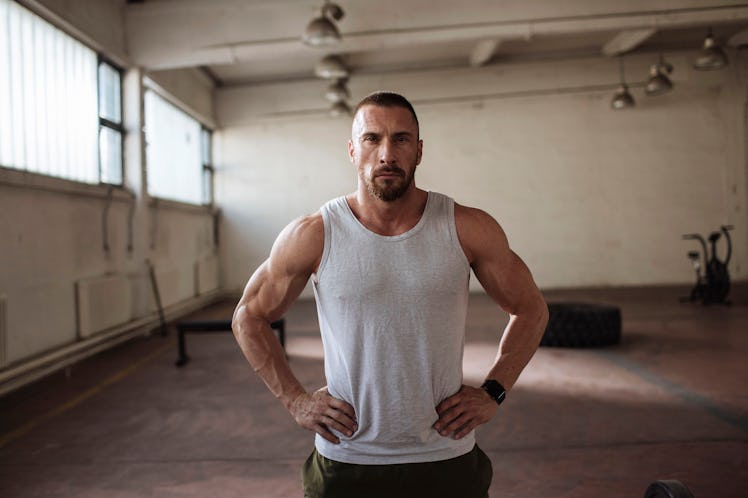Power Posing Really Can Impact Your Confidence
The proof is in the science: The way you stand could actually boost your self-esteem.

Amy Cuddy’s infamous 2012 Ted Talk claimed that power posing was the key to confidence. Critics shut down her theory for years — for good reason — but the latest research indicates that there may be some truth in it after all.
A new study, published in the American Psychological Association’s journal, Psychological Bulletin, found that, yes, the way you stand can actually play a huge role in your level of confidence.
“People engaging in dominant or upright body positions report higher self-esteem and experience more positive emotion than people who engage in contractive or slumped body positions,” says study author Robert Körner, a psychologist at Martin Luther University Halle-Wittenberg in Germany. In other words, the researchers found that those who stand tall feel better overall, according to data compiled from 130 different studies.
The researchers collected and analyzed past studies to determine whether posture influences a person’s self-perception, behavior, and hormone levels. Examining both published and unpublished studies, Körner’s team found a small-to-medium connection between posture and confidence.
So how could posture affect confidence? “Through the life-course, we learn to associate large and expansive body positions with competence and self-esteem,” Körner says. “For example, tall people are more often in leadership positions. Parents are perceived as superior from the perspective of a child.” These learnings, he continues, lead people to develop associations between height and confidence.
This allows “the psychological concept of confidence” to become grounded in the body, he says. “Thus, if a person engages in expansive body positions, concepts that are associated with expansiveness become activated, and the person ultimately feels more confident.”
Although people may feel more confident, it remains to be seen if they act more confident when standing tall. Some research has found that power posing does affect behavioral traits like task persistence and antisocialness, but other studies have not. Only those that have found bigger effects have been published, which means researchers haven’t been able to examine studies with less significant results, a phenomenon known as publication bias. “For these reasons, it is not entirely clear how strong body positions affect behavior,” Körner says.
Körner’s study also debunked controversial claims from previous research that certain poses can boost the production of hormones such as testosterone and cortisol. His team found minimal support for these claims.
There are some study design limitations that prevent the researchers from being able to say that standing tall can directly make you more confident. Most of the studies they analyzed didn’t have a control group; the researchers didn’t compare people power-posing to people standing in a neutral position. Instead, they asked participants to adopt either a dominant, open, or submissive posture.
Control groups, Körner explains, are extremely important to conducting accurate studies. “This would allow us to test whether the effect of the body positions is driven by power poses and upright postures, or by submissive poses and slumped postures.” So, it’s unclear whether an upright posture actually can make you confident, or if slumping tanks your self-esteem. Or maybe both.
Additionally, almost all the studies were conducted in WEIRD societies, or Western, Educated, Industrialized, Rich, and Democratic. Therefore, it’s not entirely clear whether findings across other cultures would be the same, although results didn’t differ across genders and age groups.
Try it yourself. Next time you stand, stand tall. After all, you might just feel more confident.
This article was originally published on